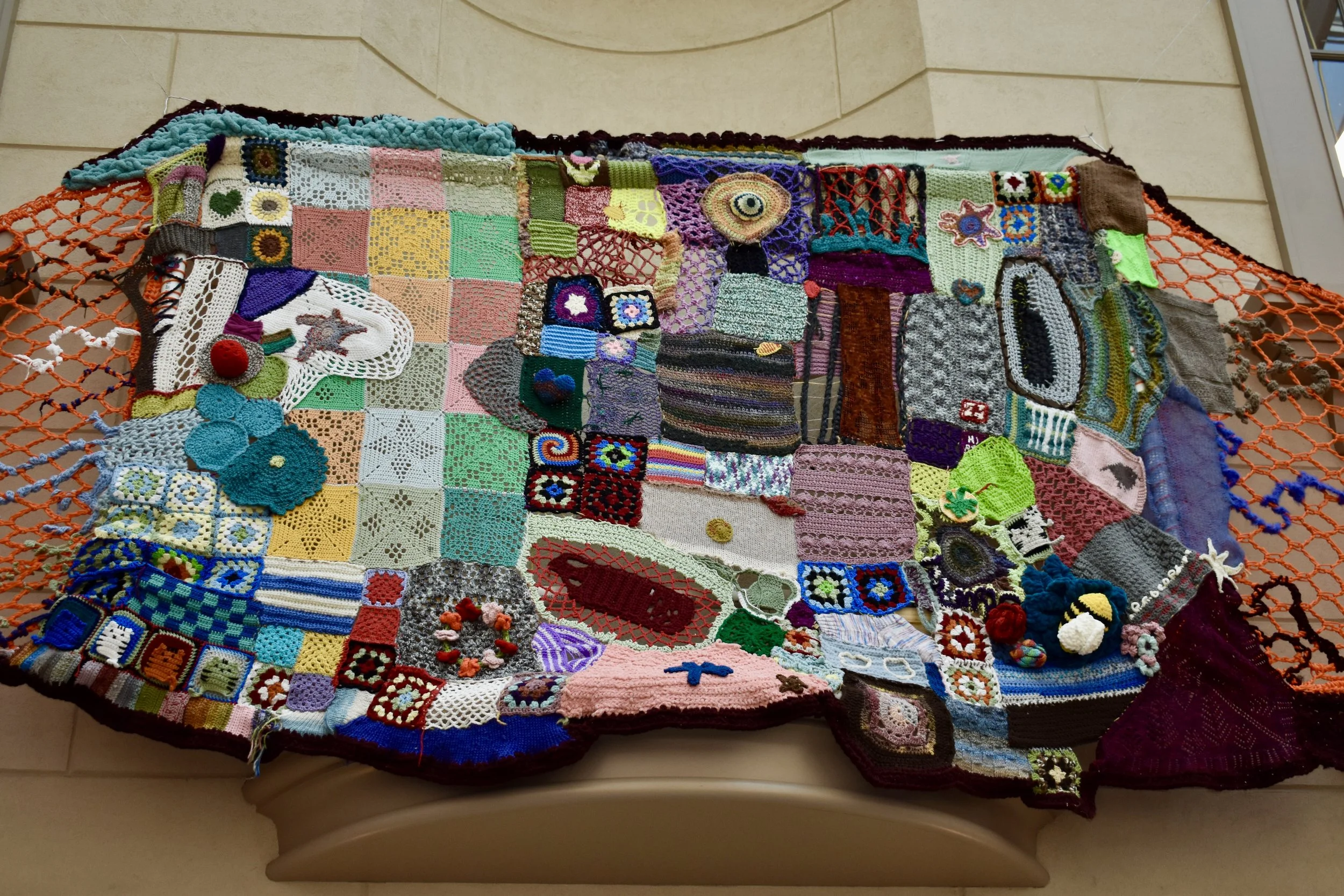Prentis Hemphill ’04 returns to campus for conversation about healing, living, love and change-making
Latine/x Heritage Month begins with dancing, conversation and community
Students celebrate the new academic year at Nightfest: Celebration Edition
Students enjoyed a silent disco, light-up games, Batch ice cream and more at Nightfest: Celebration Edition. Hosted on Sept. 7 by the Office of Student Involvement, students could participate in a dance party in Chapin Auditorium or a silent disco on the Abbey/Buck Green. Besides the music, there was a photo booth for taking pictures with friends and bags of kettle corn to snack on. Outside, there were LED ping pong tables and mini golf, as well as two food trucks, where students could choose between five flavors of Batch ice cream and three styles of grilled cheese sandwiches.
CRPE hosts Medovoi for a lecture on racial capitalism, the role of police and ‘ensoulment’
Students and faculty listened intently as Lee Medovoi discussed his forthcoming book “The Inner Life of Race: Souls, Bodies, and the History of Racial Power.” Medovoi, professor of English and vice chair of the graduate program in social, cultural and critical theory at the University of Arizona, visited Mount Holyoke College on Wednesday, Feb. 21, to give a lecture titled ‘Racial Capitalism, Civil Society & Police Power.’
APAU begins Black History Month with celebration of Black excellence and joy
Lively conversations between students, faculty and staff erupted from the Blanchard Hall Great Room while celebrating the commencement of Black History Month. The opening event, “Unity Through History: A Journey of Black Excellence,” was sponsored by Mount Holyoke College's Association of Pan-African Unity and the Office of Community and Belonging.
Rachel Maddow discusses Prequel: An American Fight Against Fascism
Adrienne Keene examines Native and Indigenous representation, land acknowledgments and ‘Land Back’ in hosted keynote lecture
Mount Holyoke College’s theme for this year’s Native and Indigenous Heritage Month is “Grounded” — “an affirmation of the deep connections between people, with land and with history that Indigenous cultures are based on. It is an affirmation that these things not only exist here, but that they can continue to be built,” according to the Dean’s Corner from Nov. 11.
The College community honors Gloria Anzaldúa and Indigenous communities for Indigenous Peoples’ Day
To celebrate Latinx Heritage Month and Indigenous Peoples’ Day, the Office of Diversity, Equity and Inclusion sponsored multiple events including, “Honoring the Ancestor, Gloria Anzaldúa: Joy, Love, And Liberation featuring Latinx Writers” and a field trip to the third annual Indigenous Peoples’ Day Ceremonial Celebration in Newton, Massachusetts.
Naomi Goldberg ’04 shares insights about advancing LGBTQ+ equity
As it rained outside, students made their way to the Cassani Room in Shattuck Hall for a conversation with Naomi Goldberg ’04 about LGBTQ+ equity. Hosted by the Weismann Center for Leadership on Sept. 30, attendees sat in a circle snacking on muffins, fruit and yogurt as Goldberg discussed her educational and career journey.
President Holley continues the College’s Yom Kippur tradition
Guests were treated to a catered dinner featuring fresh rolls, melon, berries and bagels with lox after receiving an invitation from President Danielle R. Holley to break the Yom Kippur fast together.
Students and staff entered the Willits-Hallowell Conference Center on Monday, Sept. 25, with Jewish Student Union co-chairs Nina Baran ’25 and Jennifer Garcia-Isabel ’24 leading the “brakhot” — blessings to acknowledge being in community and gratitude for the food about to be eaten. As dinner began, Holley gave a short speech, introduced herself and spoke with each table of guests as they ate.
‘Collectivity, Community, Change,’ a new Archives exhibit highlights Black History at Mount Holyoke
“Collectivity, Community, Change: Black History at Mount Holyoke” is a new exhibit that opened to the public at the beginning of September. Curated by Sarah Lancaster ’22, the former post-baccalaureate archives assistant, the exhibit emphasizes how the “history and legacy of the Black community at Mount Holyoke is rich and multifaceted” and full of “leadership, community, activism and achievement.”
The College's Common Read “Disability Visibility” explores disability justice, visibility, and inclusion
Mount Holyoke College’s 2023 Common Read is “Disability Visibility: First-Person Stories from the Twenty-First Century,” edited by Alice Wong. The anthology, originally published in 2020, includes poems, essays, blog posts and stories that center on disability experience and justice written by disabled people.
Reflecting on the 2023 Truth, Racial Healing and Transformation Institute
Mount Holyoke joins Zinn Education Project to ‘Teach Truth’ , fight against book bans
Fiber arts project ‘Devotion’ reflects community and connection
Karla Biery ’23, a critical social thought major and Spanish minor, is always thinking about “how our communities are built … and the ways that they’re split up.” Throughout her three years at Mount Holyoke, Biery has taken a combination of dance, art, religion and Spanish courses, eventually deciding to major in CST with a focus on how people connect with one another, as well as what divides them.
Mei Lum ’12 discusses gentrification in New York City’s Chinatown
On Friday, April 7, students, faculty and staff gathered in Hooker Auditorium to listen to Mei Lum ’12, the keynote speaker for Asian American Native Hawaiian Pacific Islander Heritage Month. While AANHPI Heritage Month is usually celebrated in May, Mount Holyoke celebrates it in April while students are still on campus. This year’s theme is “Rewriting the Narrative.” The goal is to fight against Asian hate and emphasize the achievements, resilience and joy of the AANHPI community.
Gaye Theresa Johnson gives inaugural lecture for the new CRPE department
As a part of Building On Our Momentum Community Day, on March 28, 2023, Gaye Theresa Johnson gave the inaugural lecture for the critical race and political economy department. Johnson is the author of multiple books and an associate professor at UCLA, teaching courses in the departments of African American studies and Chicana/o studies. She specializes in topics of cultural history, spatial politics, race, racism and political economy.



















